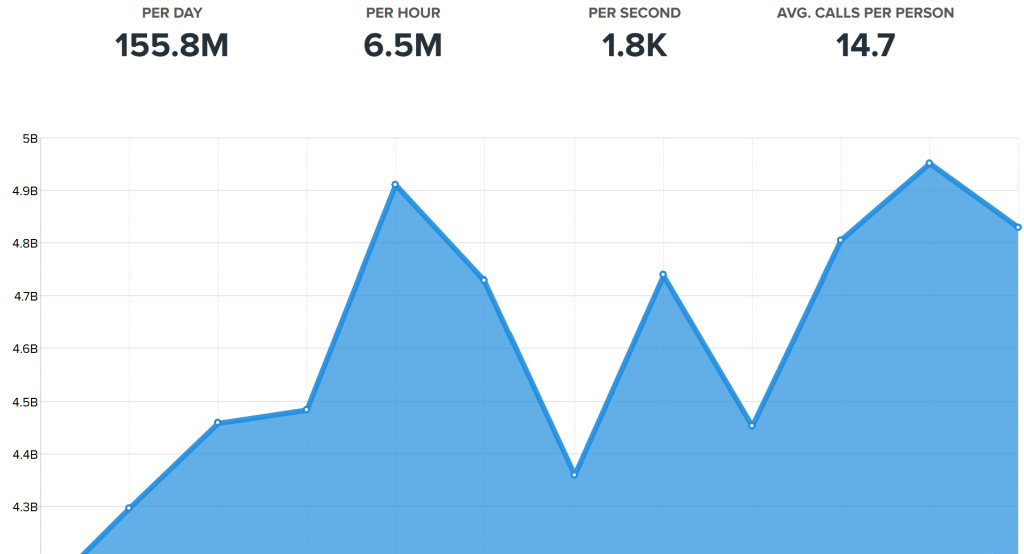from the this-is-why-we-can’t-have-nice-things dept
According to the latest data on robocalls from the YouMail Robocall Index, the scale of the U.S. robocall problem has grown by another eleven percent year over year. U.S. consumers received just over 4.8 billion robocalls in May. We’ve normalized ceding our primary voice communications platforms to corporations, debt collectors, and scammers, and there’s every indication it’s going to get worse under Donald Trump.

While the federal government had been making some progress in getting wireless companies to belatedly adopt anti-spoofing technology, the Trump administration’s decision to lobotomize whatever was left of U.S. regulatory independence and consumer protection will indisputably leave regulators flat-footed in the ongoing battle to reclaim U.S. voice networks from scumbags.
The FCC still technically exists, but under Trump it’s become a weird and pointless grievance machine run by zealots. Its primary function during Trump’s term so far has been to harass companies for not being sexist or racist enough, or threaten media companies that dare do journalism critical of King Dingus.
Consumer groups like the National Consumer Law Center have repeatedly warned Congress that the key reason our robocall problem never gets fixed is because Congress and regulators routinely fixate on scammers and not on the “legit” companies like debt collectors that use the same tactics and routinely undermine reform and enforcement efforts.
YouGov’s latest study found that “just” 14 percent of May’s robocall total was from “scammers.”
Even before Trump, a corrupted court system had consistently limited the FCC’s authority to combat robocalls. Corrupt lawmakers and regulators, cowed into blind obedience by a massive, generational, cross-industry-lobbying campaign, like to keep the focus on scammers, when many “legit” companies, again, leverage the exact same tactics as scammers.
As a result, federal regulators refuse to hold large phone companies accountable for their lagging efforts to combat fraud and spam. Case in point: Truecaller’s U.S. Spam and Scam Report found that half of all major U.S. phone companies earned a D or F in their efforts to combat annoying robocalls and scams. Functional, developed countries (even many less developed ones) don’t have these problems.
So while the FCC is supposed to enforce robocall offenses and levy fines, terrible court rulings mean they aren’t allowed to collect fines. That’s left to the DOJ, which routinely just… doesn’t bother. As a result a comically small volume of the overall fines levied are ever actually collected. For example between 2015 and 2019 the FCC issued $208.4 million in robocall fines, but collected just $6,790.
And again, this is all before Trump 2.0. And before largely unregulated AI.
Trump FCC boss Brendan Carr has been promising to take a hatchet to whatever is left of U.S. corporate oversight as part of his “delete, delete, delete” deregulatory initiative. Big telecoms and robocallers have been making it very clear they’re very excited about it. Debt collectors in particular are very eager to roll back already flimsy rules governing how badly they can harass people they already know can’t pay.
Like so many systemic U.S. problems, the robocall menace isn’t something that gets fixed without first embracing much broader corruption, campaign finance, lobbying, and legal reforms. That is, obviously and indisputably, not something that’s happening under Trump and his sycophantic regulators and telecom industry-coddling courts.
Filed Under: automation, corruption, cramming, fraud, phone calls, robocalls, scam, scammers, telecom











